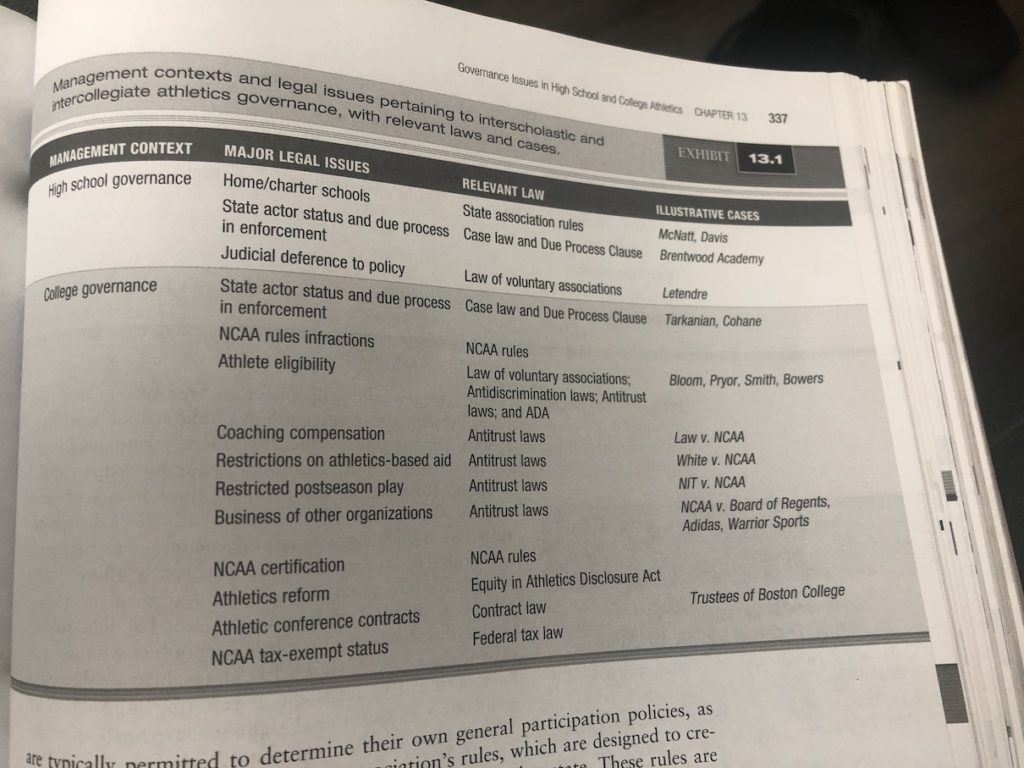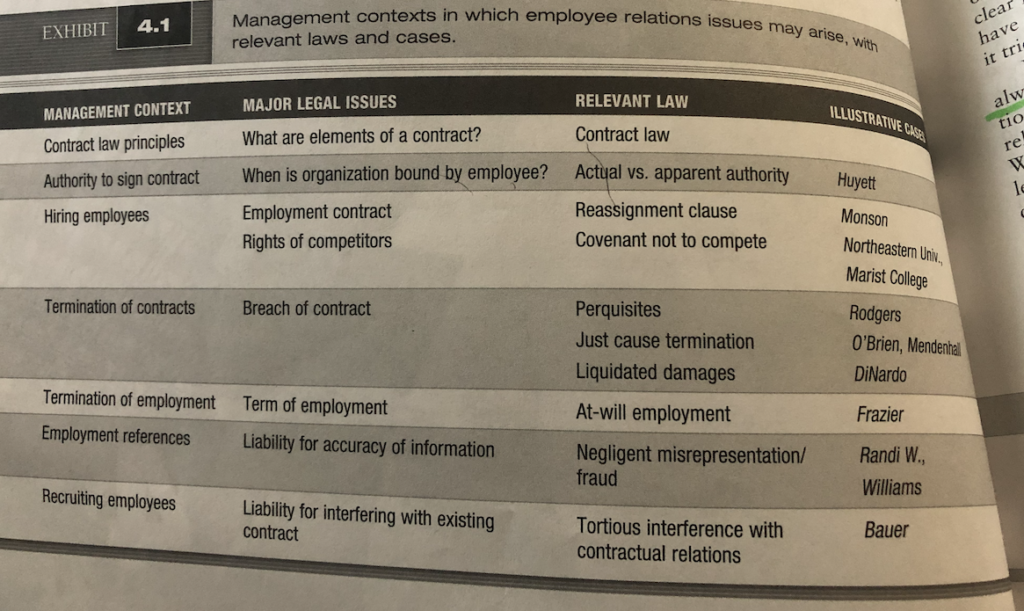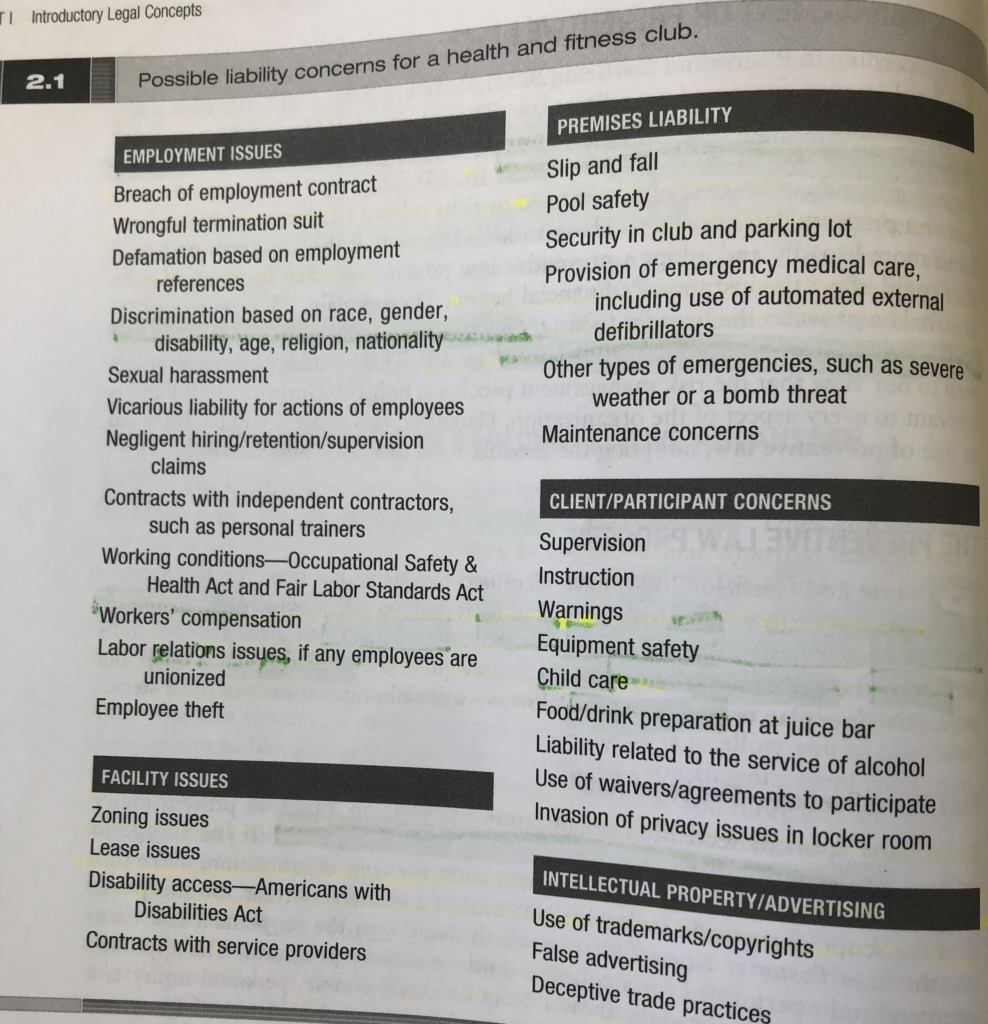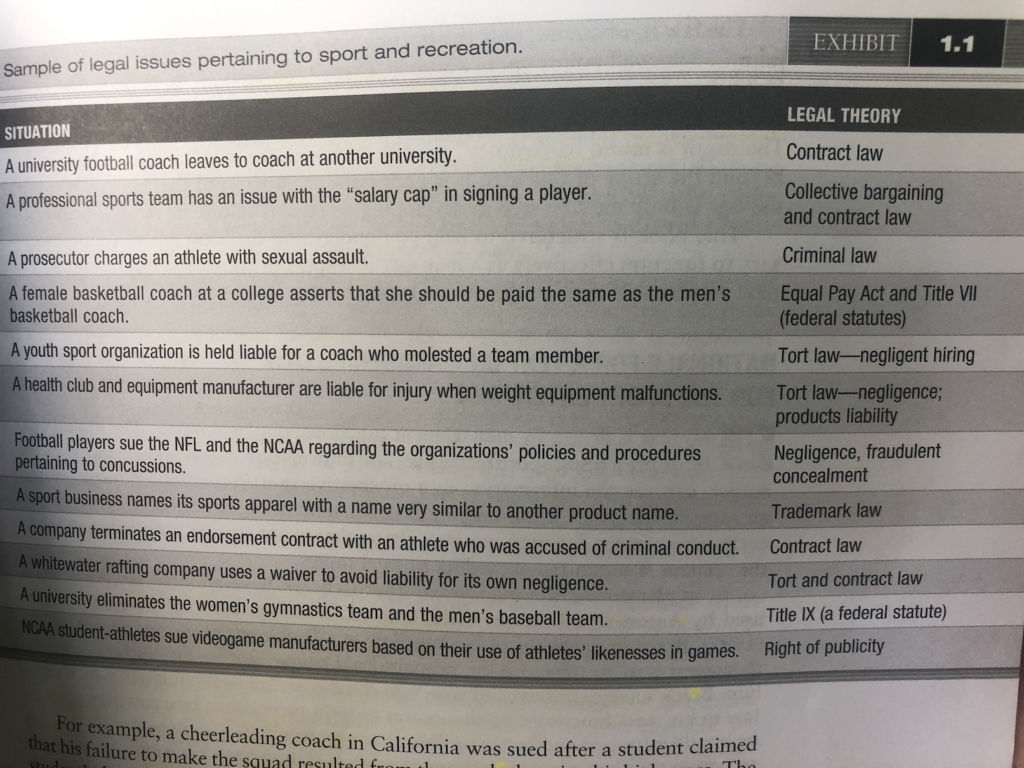On the one hand, a vital chapter for TSL and for karate stuff. On the other hand, probably going to get covered again in the Sport Facility Mgmt course, so ¯\_(ツ)_/¯
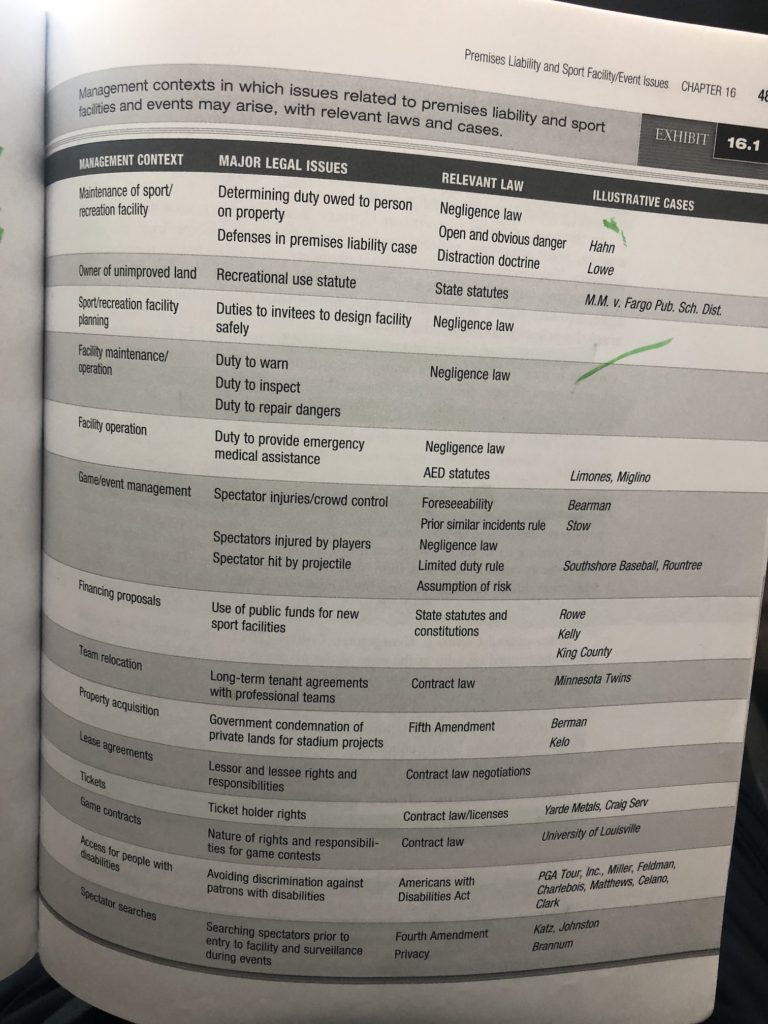
This chapter has two main thrusts: premises liability, the extension of liability materials from the previous chapter; and legality surrounding construction and operation of sport facilities. It’s a beefy chapter (almost 50 pages!!) but that seems reasonable when considering there’s an entire course on this chapter separately.
People at events must be classified as one of the following:
- Invitee: a person granted permission to be on the premises by the owner and who brings economic benefit to the owner
- Business invitee is there for the owner’s economic gain
- Public invitee is anyone attending something on public property
- Invitees are owed a duty of reasonable care (same as in chapter 15)
- Licensee: a person granted permission to be present but brings no economic benefit
- Licensees are owed only safety from intentional harm
- Liability can still exist if the owner knows about something dangerous and the licensee does not
- Trespasser: a person not granted permission to be present but is present anyway
- Owner has only the duty of not wantonly inflicting injury on trespassers (except in Texas, HEYOOOOO)
- Child trespassers are still owed some care due to the attractice nuisance doctine where private property with something children will want to get involved with (e.g. swimming pool) grants the duty of ordinary care by the owner
Defenses against premises liability:
- Open and obvious danger
- If the danger is open and obvious it can protect a defendant from liability claims
- Exception: deliberate encounter exception where the operator must be able to account for the typical behavior of the participants
- Exception: distraction doctrine where participants may be distracted (e.g. by mascots) and thus not able to react to open and obvious danger
- Recreational use statutes
- Immunity on this basis covered in chapter 15
Duties owed to invitees:
- Duty to design the facility safely
- Duty to warn
- Duty to inspect
- Actual notice: dangers discovered during inspection
- Constructive notice: dangers that would have been discovered by competent inspection but weren’t because inspection was not done or not done properly
- Duty to repair dangers
- Duty to provide emergency medical assistance
- There’s some really sad stories in here about AEDs
Spectator injuries
- In tort law, it is rare to be liable for third party harm, but venue owners/operators do have that obligation
- Safe Place statutes can elevate the obligations on venue owners
- Alcohol increases the foreseeability of injuries and mayhem
- The dram shop acts increase penalties against commercial enterprises when intoxicated individuals or minors are served alcohol and then go on to injure someone else
- Injuries from sports projectiles are covered under limited liability rules (so long as the owner puts up a screen and provides warnings they have sufficiently protected the spectators)
There’s a whole section on the legalities of publicly financed stadiums, teams building new venues and changing cities, and acquiring land through eminent domain.
This particular section is grisly and I’m pretty sure I know the basics so I don’t feel like taking notes on it.
When an event happens in a venue, the owner, operator, city, and league are usually all separate entities and thus must enter into a leasing agreement with each other. Leasing agreements have the following components:
- Right to use and occupy
- Defines the terms and the times involved
- Rental fees
- “Always take a percentage”
- Fee for additional services
- Revenue sharing
- Kitchen sink provisions:
- Nonassignment clause: preventing lessee from assigning its rights to another org
- Choice of law: identifying what state’s laws apply
- Hold harmless: the lessor will be held harmless by the lessee in the event of any negligence or liability suits
- Indemnification clause: the lessee will indemnify the lessor (compensate any losses as a result of injury to guests)
- Insurance clause
- Force majeure clause: acts outside the control of anyone can void the contract
- Damage clause: holds the lessee responsible for damage to the venue
Tickets are “revocable licenses” and so long as the terms are spelled out, revocation can happen at any time. Personal seat licenses (PSLs) can get more complicated.
When two teams play and one team owns the venue (e.g. university court/stadium) the teams enter into a game contract. Such a contract might include:
- Location, date and time
- Financial arrangements
- Eligibility and game rules
- Termination provision
- In the event of a breach of contract, this is how you recover that loss
- Force majeure clause
- Broadcast rights provision
- Insurance and indemnification clauses
- Complimentary tickets
- Promotional rights
There’s a big block on ADA compliance w/r/t wheelchair accessibility etc. If I ever need it I know where to look again.
There’s a little bit on surveillance of spectators including searching them. Sigh. MUH RIGHTS folks amirite.
That’s all for this! Last week of class let’s goooo!

